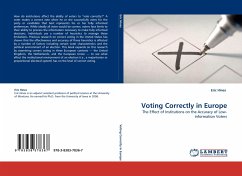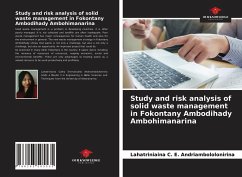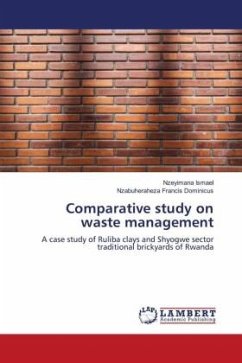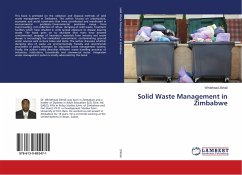
Inefficient or not correctly enforced? Waste policies in Naples
Municipal solid waste management in Naples
Versandkostenfrei!
Versandfertig in 6-10 Tagen
32,99 €
inkl. MwSt.

PAYBACK Punkte
16 °P sammeln!
Waste management is gaining importance on today's decision-makers' agenda. the effectiveness of political actions on waste management affects directly the daily life of citizens, who are more and more sensitive to how waste plans are implemented and waste processes take place. In order to look into the whole process one single case will be depicted; the case of Naples which, in 2008, became infamous for its patent poor waste management. The study of this case will highlight the different phases of waste cycle, the involvement of different stakeholders, whether from the governmental - central a...
Waste management is gaining importance on today's decision-makers' agenda. the effectiveness of political actions on waste management affects directly the daily life of citizens, who are more and more sensitive to how waste plans are implemented and waste processes take place. In order to look into the whole process one single case will be depicted; the case of Naples which, in 2008, became infamous for its patent poor waste management. The study of this case will highlight the different phases of waste cycle, the involvement of different stakeholders, whether from the governmental - central and local or the private sector, as well as the citizens themselves, and, last but not least, an examination of the legal framework regulating waste management. Leading topics of this research study will be the causes of such ecological disruption; the extent to which these are due to political negligence; and the solutions suggested for repairing the damage.












